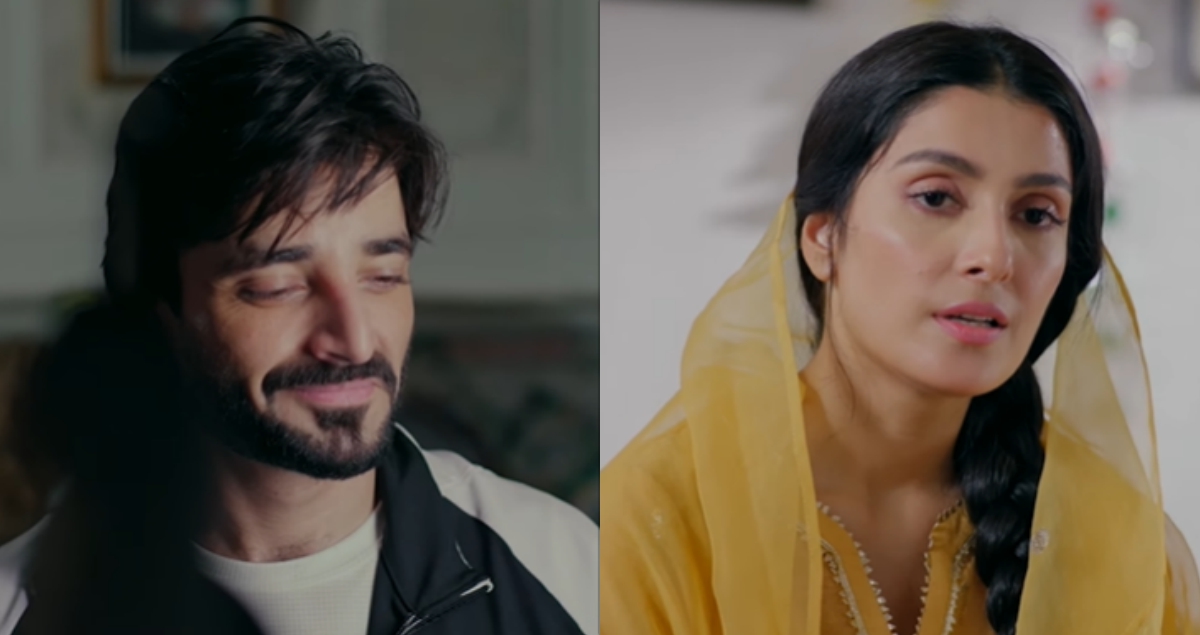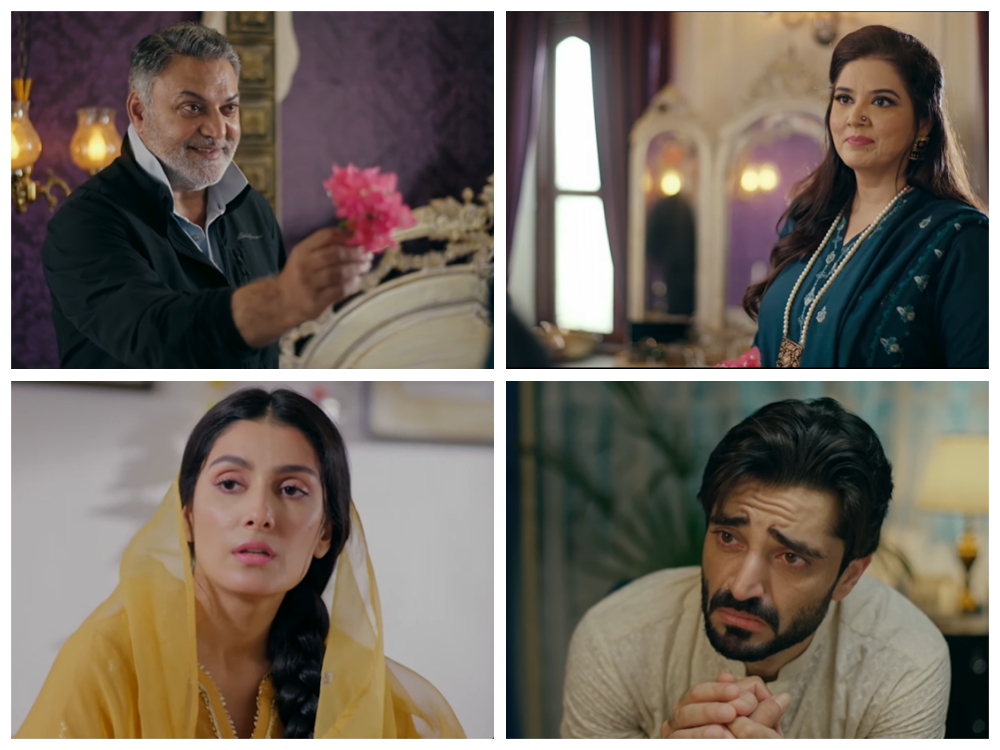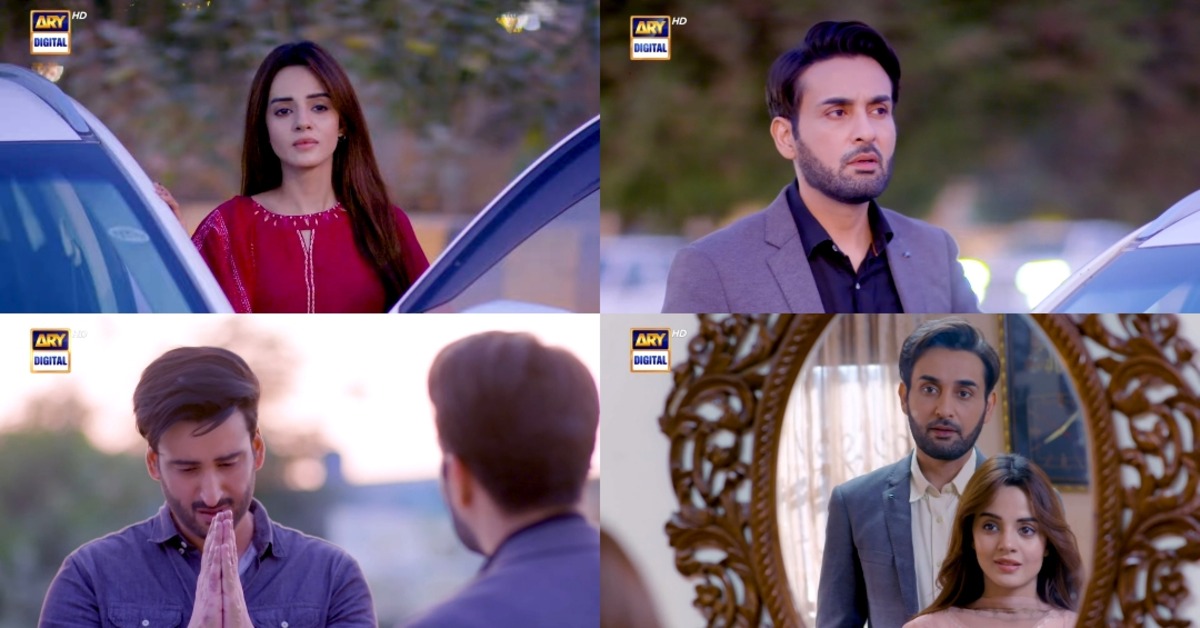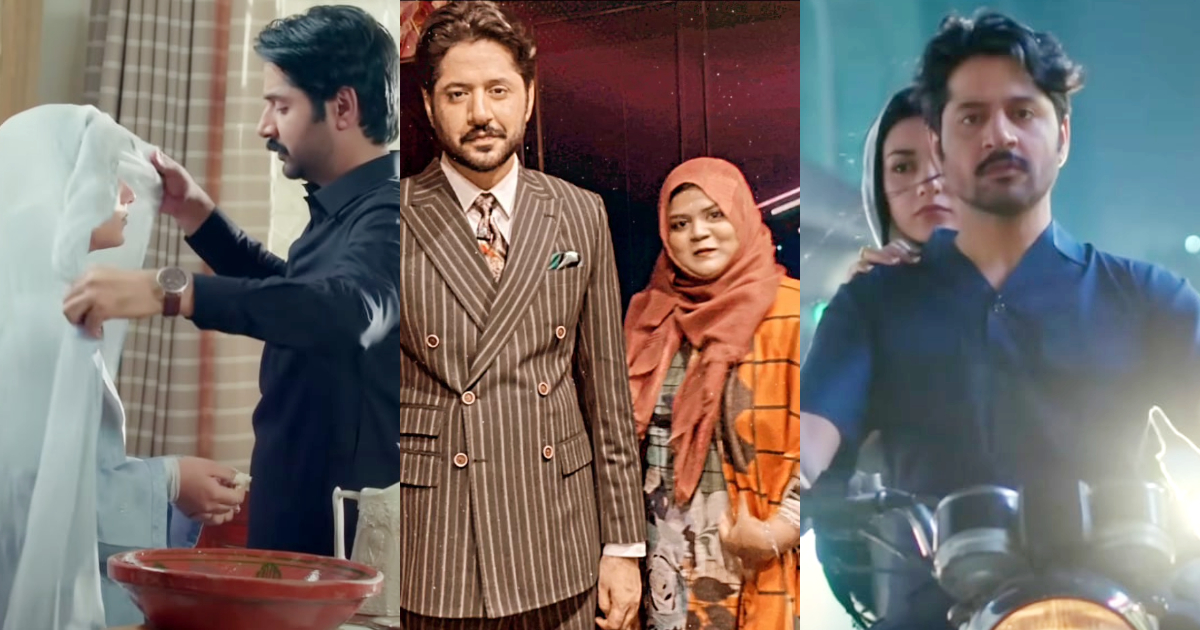Writer: Rida Bilal
Director: Qasim Ali Mureed
Produced by: Six Sigma Plus & Next Level Entertainment
Schedule: Friday & Saturday at 8 pm on ARY Digital
After a long time, the first episode of a drama prompted me to express my views immediately. After watching multiple recent opening episodes that were either overly dramatic or disappointingly lackluster, this particular first episode managed to excel by precisely striking the right chord. Its brilliance for the most part lies in capturing and conveying the essence of the narrative with precision. Indeed, this serves as a testament to the power of straightforward and well-executed writing. It highlights that sometimes, simplicity and clarity in narrative construction are all it takes to captivate the audience’s attention.
This first episode of Jaan-e-Jahan reminded me of the opening episodes of Khudgharz which was also written by Rida Bilal. This first episode was uncomplicated yet engaging, it carried a powerful emotional undertone, and every character was introduced skillfully with utmost clarity. The opening scenes were a winner, and the engagement value continued to be strong throughout.
Apart from the evident clarity in the writing, the handling of the script was flawless. The background score was a consistent highlight throughout this episode as it flawlessly set the tone for each scenario with precision without being overpowering. The seamless integration of a well-crafted background score makes a big difference. Also, the director kept it real with birds chirping in the background and other such sounds.
Every performance in this opening episode shone brightly; not a single weak link was to be found. The meticulous casting ensured that every actor not only embraced their character but also brought a unique dimension that enhanced the genuine portrayal. The meticulous attention to detail in designing the looks of the actors, coupled with the skillful camerawork and thoughtful angles, undeniably played a pivotal role in amplifying the impact of the performances.
Characters & Performances
Since this is Hamza Ali Abbasi’s comeback drama, it is only fair to start this review by talking about his character and performance. Hamza Ali Abbasi plays the role of Shehram, a sensitive man who lost his mother when he was 12, and even after all these years, he holds her dear, remembers her at every step, and is afraid of losing his father. Shehram’s relationship with his father stood out in this first episode more than any other. In portraying a likable character, Hamza Ali Abbasi skillfully navigated the nuances of the role, adding in it a relatable charm and authenticity. He managed to convey the character’s feelings with authenticity. His on-screen chemistry with all the actors involved unquestionably contributed to the overall charm of this particular track. The fact that his father trusts him so much goes to show that apart from having a good character, he is also completely capable of running this extensive business. In this specific episode, I am guessing that the writer chose not to emphasize his standing as a businessman. Instead, the focus was on portraying him as a genuine gentleman with a childlike innocence.
I am genuinely pleased to see Ayeza Khan undertaking a role in this drama that distinctly deviates from the characters she has portrayed in the recent past. In Jaan-e-Jahan, Ayeza Khan takes on the character of Mahnoor, a young woman introduced as someone who cherishes the simple things in life. At the same time, her character is portrayed with the confidence to question the complexities that surround her. After watching her as Mubashra in Mein it is nothing short of a refreshing change seeing her in a role that is both subtle and impactful. While the archetype of this character may not be entirely new, the freshness and likability of such characters persist as long as there is a genuine commitment to crafting their narratives with depth and bringing them to life through skillful performances. The trend of starting dramas with ill-fated marriages has become quite prevalent, with many storylines unfolding against the backdrop of unions that seem destined for doom.
Asif Raza Mir plays the role of Mir Shah Murad, a distinguished businessman whose principles prioritize human values over material gains. At the same time, his character shows the smarts needed not just to reach the top of the success ladder but also to stay there as a leader. He also possesses the wisdom to understand his children and see them for who they truly are. I especially liked how the writer introduced the human element of this character on-screen in the opening scenes through his visit to the factory. The way he was showcased as both kind and astute, without falling into the trap of naivety, was depicted well. I must say that this was the kind of comeback that I wanted to see Asif Raza Mir making. He seamlessly embraced this character, fitting into it like a glove, and promptly captured my admiration as Shah Ji.
Savera Nadeem plays the role of Kishwar, Murad’s second wife and the mother of his other two sons. She has tactfully over the years earned Murad’s trust and even though she cannot stand Shehram, she pretends to give him the same respect and standing as her husband. While this character may not be entirely ‘brand new,’ the approach taken in this first episode assures that it will hopefully not follow the well-trodden path of many similar characters. Savera Nadeem is an exceptional actress who stands out even more when she is given a role that has different shades and layers.
Haris Waheed plays the role of Tabraiz, Murad and Kishwar’s son, and presents a stark contrast to Shehram. His character embodies the typical vices often associated with affluent youngsters in our dramas, prompting genuine reflection on why he turned out this way. Is it a result of Murad not investing as much time and energy in his upbringing as he did with Shehram, or is this behavior an intrinsic part of his personality? This is another scenario that is not new but I am interested in finding out how it pans out. I honestly believe that Haris Waheed is an outstanding actor who is underrated. Despite the limited nuances of this character in this specific episode, Haris Waheed managed to leave a lasting impression through his convincing portrayal, both in appearance and performance.
Raza Talish portrays the character of the other seemingly wayward son, prompting contemplation on whether the mother’s upbringing is a contributing factor to these sons turning into spoiled individuals. Noor-ul-Hassan establishes himself as a recurring choice for on-screen paternal roles, stepping into the character of Mahnoor’s father in this drama. Mahnoor’s father works for Murad. He was introduced as a down-to-earth and hardworking individual who for some reason decided to marry his daughter in a family that is poles apart from theirs. Kinza Malik plays the role of Mahnoor’s mother, she is one of my favorite actresses because she embodies her roles so well. I found the actress portraying Mahnoor’s sister to be particularly likable, especially considering the recent trend of witnessing subpar performances in similar roles.
Every member of the supporting cast played their respective roles exceptionally well, standing out in contrast to the compromises on quality often seen in recent dramas especially when it comes to supporting cast.
Final Remarks
In my opinion, this first episode could not have been better in terms of script and execution. Except for one scene which covered Shehram confronting Tabraiz on the road, all the other scenes were realistic yet visually pleasing. I am looking forward to watching the second episode of Jaan-e-Jahan because I have been longing for a drama that strikes a balance – neither too overwhelming nor lacking in substance, but rather meaningful and engaging.
Did you watch the first episode of Jaan-e-Jahan? Do share your thoughts about it.




